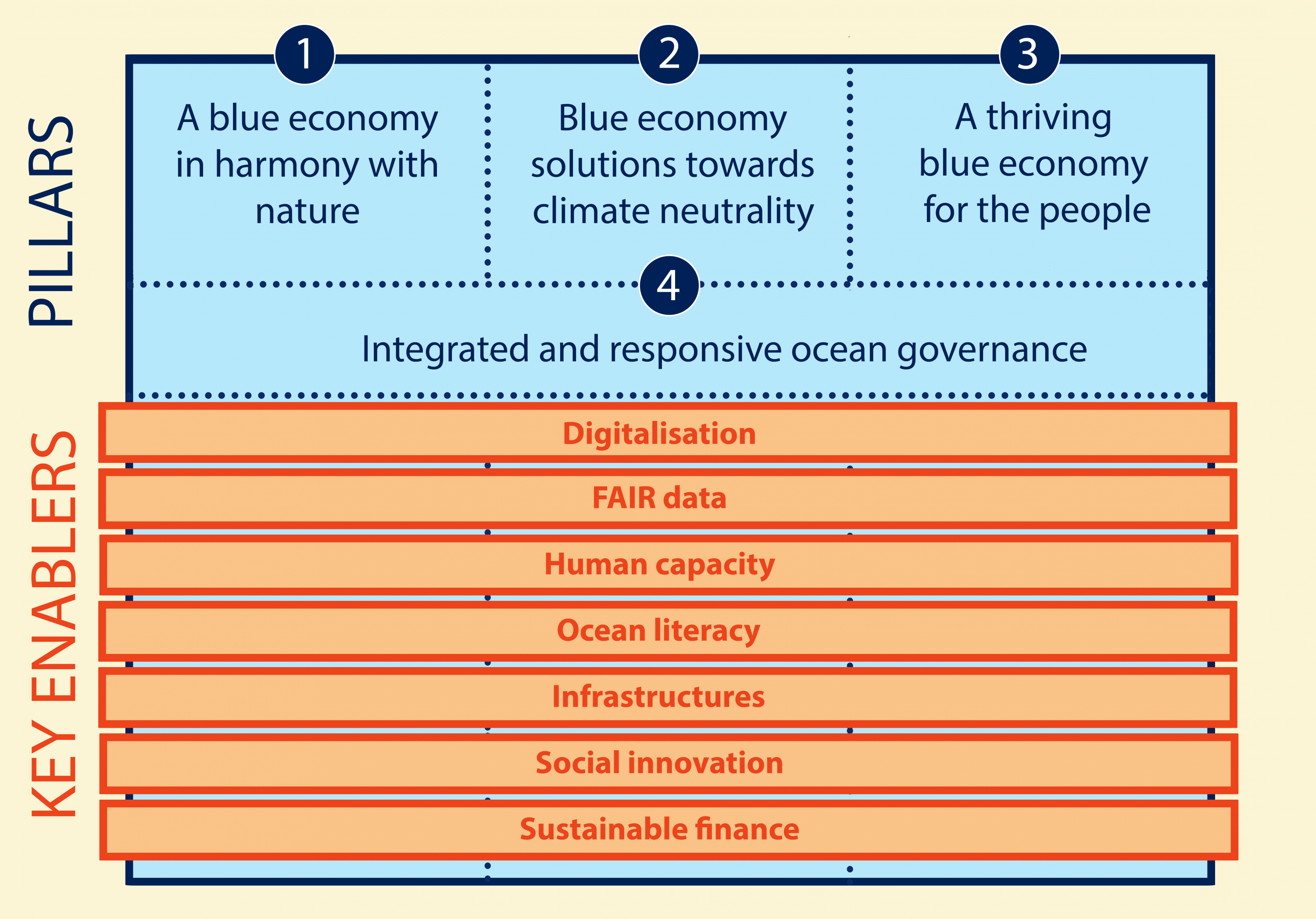In 2019, the European Commission asked potential partners to further elaborate proposals for the candidate European Partnerships identified during the strategic planning of Horizon Europe. The process led to a portfolio of 49 European Partnerships. Among them is the Partnership ‘A climate neutral, sustainable and productive Blue Economy’, in brief ‘Sustainable Blue Economy’ Partnership, which commenced in September 2022. At the core of the Partnership is combining pan-European, regional and national investments and aligning socio-political priorities for marine and maritime research and innovation. This ensures high return on public investments through collaboration and prospect for sustainable maritime economic development.
The Sustainable Blue Economy Partnership boosts the transformation towards a climate-neutral, sustainable, productive and competitive blue economy. The Partnership aims to restore the ocean’s health, resilience and services to people by enabling economic activity that is climate-neutral, sustainable and productive.
The partnership is coordinated by the Italian Ministry of Universities and Research and co-coordinated by the Research Council of Norway.
The third of six co-funded calls for research and innovation proposals will be launched in early September 2025 and will be addressing five priority areas:
- Digital twins of the ocean
- Blue economy sectors
- Managing sea-uses
- Blue bioresources
- Resilient coastal communities and businesses
More information can be found at bluepartnership.eu
JPI Oceans coordinated the drafting of the Strategic Research and Innovation Agenda (SRIA), prepared in coordination with Member State delegates, representatives of the Sea-basins Initiatives and the European Commission. The draft SRIA was delivered in February 2020 and provided the legal basis for the inclusion of the Sustainable Blue Economy Partnership call in the Horizon Europe Work Programme 2021-22. The final version of the SRIA can be viewed here.
The SRIA is a framework of agreed high-level ideas for thematic Partnership priorities, which the Annual Work Plans of the Partnership is based on. The SRIA is subject to periodic revision to ensure its strategic relevance is maintained over the course of the Partnership.
This SRIA builds on the analysis, priority setting, and stakeholder consultation performed while developing the strategic agendas of regional and pan-European initiatives. Regional-scale strategic agendas revealed important knowledge gaps and associated R&I themes of high relevance, shared across sea basins. It inspired the architecture of a pan-European agenda for the Sustainable Blue Economy Partnership, with four high-level thematic pillars under which priority R&I objectives were clustered: 1) A blue economy in harmony with nature, 2) Blue economy solutions towards climate neutrality, 3) A thriving blue economy for the people, 4) Integrated and responsible ocean governance.

The pillars reflect the transformative change required to achieve a sustainable transition of the blue economy that will benefit people, planet and economy. Pillars 1-3 relate to the three blue economy aspects mentioned in the Partnership title, namely sustainability, climate neutrality and productivity. In the context of this Partnership, these key terms are considered in the broad sense of their meaning. Sustainability refers to a desired system that reconciles long-term environmental and economic health. Climate neutrality includes the goal of a net zero effect of all activities on the climate system throughout entire value chains and considering socioeconomic climate resilience. The term productivity refers to a sustainable blue economy‘s contribution to secure provision of requirements for the well-being of all people, such as sustainable jobs, income, food, health, safety and recreation.
Pillars 1-3 are connected by the integrative element of governance represented by pillar 4. While governance is relevant to all pillars, its critical importance in achieving the aims of the Sustainable Blue Economy Partnership and its outstanding relevance for European countries and the European Union, means it is afforded its own pillar and associated R&I objectives.
Seven cross-cutting key enablers have been identified. They connect and support all four pillars. These enablers are essential catalysts to achieve the objectives of all four thematic pillars, but do not themselves have R&I objectives associated with them.